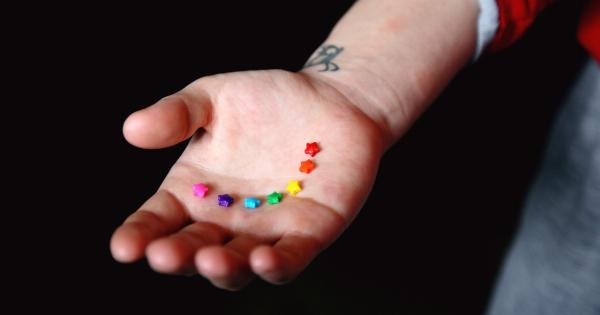Mastitis is a condition that causes inflammation and swelling in the mammary glands of nursing mothers, which can be quite painful and uncomfortable.
The buildup of milk in the breast can lead to infection, which can result in fever, flu-like symptoms, and other discomforts. This condition is most common in breastfeeding moms, but even those who have stopped nursing can experience it. In this article, we will discuss some of the most effective treatments for mastitis in nursing moms.
What are the causes of Mastitis in Nursing Moms?
Mastitis in nursing moms occurs when the milk ducts in the breast become blocked. Milk can build up, and bacteria can grow, leading to inflammation and infection. It can also occur when bacteria enter the breast tissue through cracked or sore nipples.
Some common causes of mastitis in nursing moms include:.
- Incomplete emptying of the breasts during nursing or pumping
- Clogged milk ducts
- Engorgement
- Wearing tight clothing or a bra that does not fit properly
- Injury to the breast from a blow or hit
- Stress or fatigue
How to treat mastitis in nursing moms?
The treatment for mastitis in nursing moms depends on the severity of the condition. Some strategies include the following:.
: 1. Keep the affected breast empty
One of the essential steps in treating mastitis in nursing moms is to keep the affected breast empty. This means nursing or pumping both breasts equally and frequently.
Mothers should make sure that the infant latches on correctly to make sure that the breast is emptied entirely.
: 2. Apply warmth to the area
Using a warm compress on the affected breast before nursing or pumping can help relieve the pain and improve the emptying of the breast. The warmth can help to relax the muscles, thus making it easier for milk to flow.
: 3. Massage the breast
Lactation massage or breast massage can be a helpful way to relieve mastitis in nursing moms. This type of massage uses pressure and movement to break down any blockages in the breast and help the milk to flow better.
Massaging the blocked area towards the nipple can also help release any trapped milk.
: 4. Antibiotics
If the mastitis does not clear up with the above measures, the doctor may prescribe antibiotics. The antibiotics are used to treat the bacterial infection in the breast, which is often the cause of the inflammation.
: 5. Get enough rest
Rest is crucial in treating mastitis in nursing moms. Getting enough sleep and reducing the amount of stress is a great way to boost the immune system and allow it to fight off the infection.
: 6. Painkillers
Mastitis in nursing moms can be quite painful. Over-the-counter pain relievers like acetaminophen or ibuprofen may provide some relief until the infection clears up.
: 7. Increase Fluid Intake
It is essential to drink enough water and fluids when treating mastitis. This helps to flush out any bacteria that might be in the breast and helps maintain good hydration.
: 8. Wear loose and comfortable clothes
Wearing comfortable, loose-fitting clothing that does not place any pressure on the breast can help relieve the soreness and prevent further blockages.
: 9. Essential Oils
Some essential oils like tea tree oil, lavender oil, and peppermint oil have antibacterial or anti-inflammatory properties that can be helpful in managing the symptoms of mastitis.
However, it is essential to dilute the essential oils with a carrier oil before applying them topically to the breast.
: 10. Consult a lactation professional
If the mastitis persists despite following the above treatment measures, it might be helpful to consult a lactation professional. They can provide guidance on proper breastfeeding techniques and lactation massage to help clear the blocked milk ducts.
Conclusion
Mastitis in nursing moms can be painful and uncomfortable.
Keeping the breast empty, using a warm compress, massaging the breast, antibiotics, getting enough rest, painkillers, increasing fluid intake, wearing loose clothes, using essential oils, and consulting a lactation professional are some of the most effective treatments for mastitis in nursing moms. However, if the symptoms persist, it is essential to consult a doctor.






























